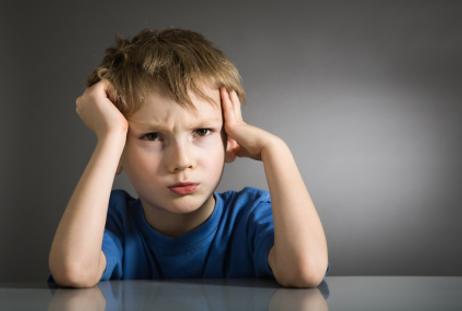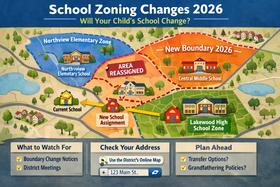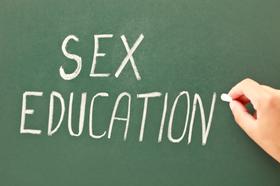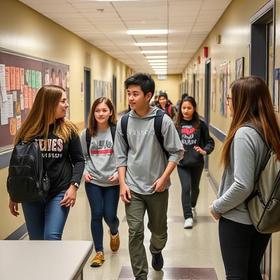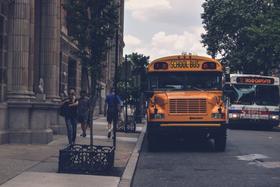As teens transition through middle and high school, many parents witness their children exhibiting problematic behaviors as students try to assert more freedom and independence. Behaviors such as lying, stealing, not performing well in school, skipping class, or exhibiting general disruptive actions are common among teens.
Despite these issues, however, the vast majority of students struggling with troubling behaviors can improve and advance within one year if they receive early intervention. Early intervention strategies may be the key to solving issues and problems exhibited by teens. Public schools have developed action plans to improve teen behavior to achieve this early intervention. Paired with this, parents can implement specific strategies to help their teens work through some common issues and struggles during the middle and high school years.
Teens and Troubling Behavior
The Common Behavioral Issues
While many teens in middle and high school fall prey to the temptations of peer pressure, fitting in, and the lure of popularity, these pressures can often pull teens towards disruptive and negative behaviors that are evident both in and outside of school.
According to Parenting Teens, “Struggling t"ens (and even those not struggling) tend to project their smoke screens for various reasons. You may see them behaving with studied indifference to virtually everything. They may prefer not to be seen with the family. They may be withdrawn, irritable, difficult, and downright unpleasant.”
Often, "these attitudes are simply a developmental “phase” that "teens "exhibit as they move through puberty; however, schools and parents must still ensure that the appropriate guidelines for behavior are being taught and reinforced to help teens foster proper skills and attitudes.
Common Causes of Behavioral Problems in Teens
The teenage years become a formative part of each individual’s transformation. Teens often provoke behavioral issues such as negativity, poor attitude, lack of effort, etc. Many teens also exhibit behavioral issues due to problems with anxiety or low self-esteem. To disguise the uncomfortable period of change and transition, teenagers create facades, which can further distress themselves internally.
In addition to issues with personal self-confidence, many teens struggle to build positive coping skills. As Parenting Teens further explores, “the coping "ills of a teenager are certainly not fully developed […] They can't see how to factor in the possible consequences of their actions, no matter how rash they may seem. So they tend to trip over many more obstacles than may seem reasonable because they don’t have the to avoid them.”
When teens "exhibit problematic behavior, both parents and public school leaders may question teens’ motiveteens'entimes, the motivation for poor behavior is simply a misunderstanding of clear boundaries, expectations, and consequences. As such, teens must be both reinforced and guided toward forming more robust critical thinking and decision-making skills.
How to Help a Struggling Teen
What Public Schools Can Do
For teens exhibiting seriously detrimental behaviors, the school or the parent may initiate a meeting to discuss putting the teen in a specialized behavioral program. The middle and high school behavior programs are designed to improve both the teen's learning opportunities and their overall attitude and behavior. These high school programs combine a focus on academics with behavior adjustment, creating a structured environment that will help the student perform better and work towards graduation.
Each public school system has a unique discipline model for teens with less severe behaviors. Often, schools may reprimand troubling teens with consequences such as detention, suspension, or community service. To foster successful results, parents should support school leaders’ decileaders consequences while striving to communicate with their son/daughter a discussion about choices and accountability.
What Parents Can Do
Parents seeking avenues to help their struggling teen can use different means to build a healthier relationship. By communicating with your child honestly and directly, you can help them understand the consequences of their actions. Let them know they can make confident decisions but must be responsible for the consequences.
Parents can communicate these essentials by insisting on specific parent-teen conference times. These can be opportunities for parents and teens to discuss rules, goals, responsibilities, and consequences. A family contract can also be beneficial. Work together to create an agreement that highlights which behaviors are unacceptable – and outlines the reprimands that will happen if those behaviors should occur. Equally important are rewards; the benefits in the family contract will reward the teen should they avoid poor behaviors.
In successfully working with one’s teen on new rules and consequences, parents can open the conversation by inviting their child to add some of their suggestions for rules. This is an opportunity for calm and open collaboration.
Questions? Contact us on Facebook. @publicschoolreview

